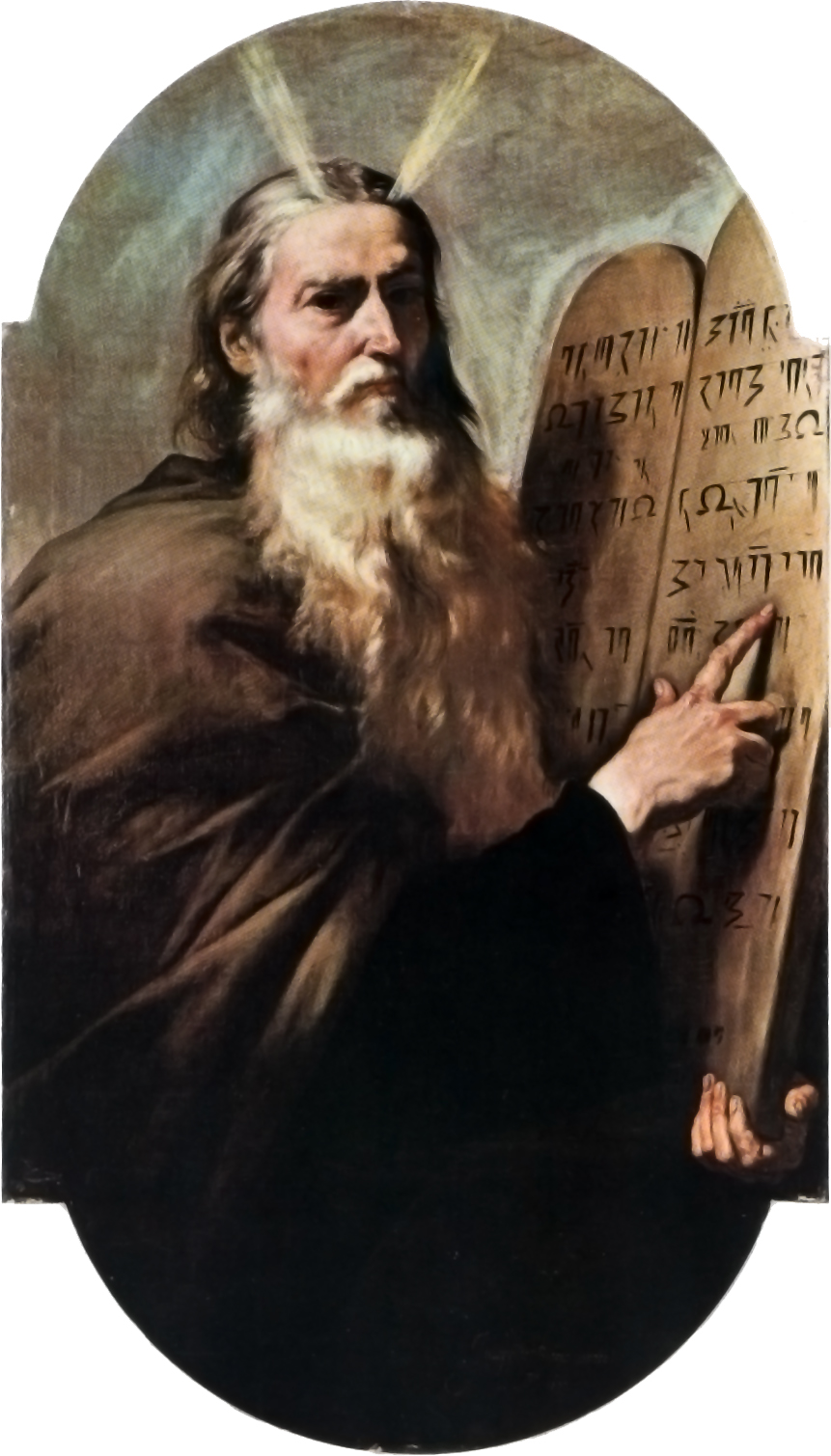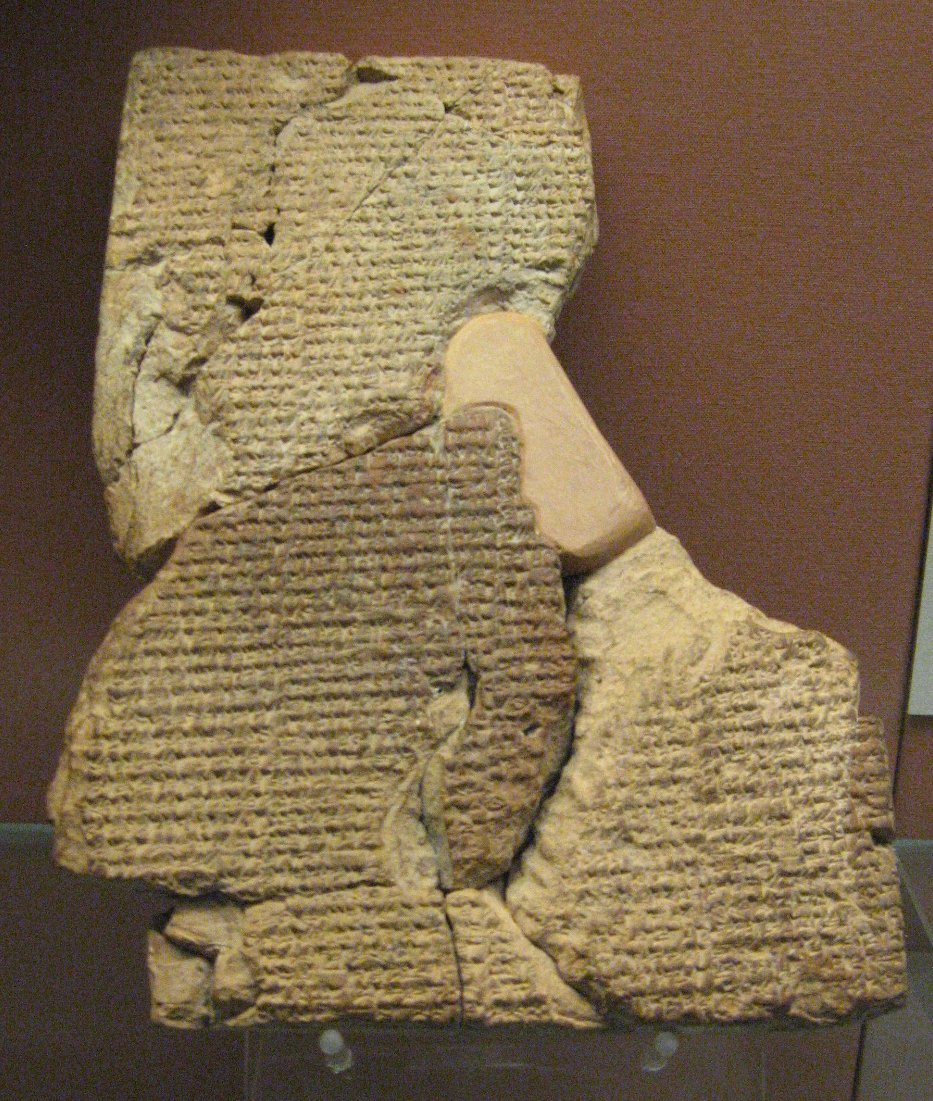|
Pentateuch
The Torah (; hbo, ''Tōrā'', "Instruction", "Teaching" or "Law") is the compilation of the first five books of the Hebrew Bible, namely the books of Genesis, Exodus, Leviticus, Numbers and Deuteronomy. In that sense, Torah means the same as Pentateuch or the Five Books of Moses. It is also known in the Jewish tradition as the Written Torah (, ). If meant for liturgic purposes, it takes the form of a Torah scroll ('' Sefer Torah''). If in bound book form, it is called '' Chumash'', and is usually printed with the rabbinic commentaries (). At times, however, the word ''Torah'' can also be used as a synonym for the whole of the Hebrew Bible or Tanakh, in which sense it includes not only the first five, but all 24 books of the Hebrew Bible. Finally, Torah can even mean the totality of Jewish teaching, culture, and practice, whether derived from biblical texts or later rabbinic writings. The latter is often known as the Oral Torah. Representing the core of the Jewish s ... [...More Info...] [...Related Items...] OR: [Wikipedia] [Google] [Baidu] |
Mosaic Authorship
Mosaic authorship is the Judeo-Christian tradition that the Torah, the first five books of the Hebrew Bible/Old Testament, were dictated by God to Moses. The tradition probably began with the legalistic code of the Book of Deuteronomy and was then gradually extended until Moses, as the central character, came to be regarded not just as the mediator of law but as author of both laws and narrative. The books of the Torah do not name any author, as authorship was not considered important by the society that produced them, and it was only after Jews came into intense contact with author-centric Hellenistic culture in the late Second Temple period that the rabbis began to find authors for their scriptures. By the 1st century CE, it was already common practice to refer to the five as the "Law of Moses", but the first unequivocal expression of the idea that this meant authorship appears in the Babylonian Talmud, an encyclopedia of Jewish tradition and scholarship composed between 200 a ... [...More Info...] [...Related Items...] OR: [Wikipedia] [Google] [Baidu] |
Book Of Genesis
The Book of Genesis (from Greek ; Hebrew: בְּרֵאשִׁית ''Bəreʾšīt'', "In hebeginning") is the first book of the Hebrew Bible and the Christian Old Testament. Its Hebrew name is the same as its first word, ( "In the beginning"). Genesis is an account of the creation of the world, the early history of humanity, and of Israel's ancestors and the origins of the Jewish people. Tradition credits Moses as the author of Genesis, as well as the books of Exodus, Leviticus, Numbers and most of Deuteronomy; however, modern scholars, especially from the 19th century onward, place the books' authorship in the 6th and 5th centuries BC, hundreds of years after Moses is supposed to have lived.Davies (1998), p. 37 Based on scientific interpretation of archaeological, genetic, and linguistic evidence, most scholars consider Genesis to be primarily mythological rather than historical. It is divisible into two parts, the primeval history (chapters 1–11) and the anc ... [...More Info...] [...Related Items...] OR: [Wikipedia] [Google] [Baidu] |
Genesis Creation Narrative
The Genesis creation narrative is the creation myth of both Judaism and Christianity. The narrative is made up of two stories, roughly equivalent to the first two chapters of the Book of Genesis. In the first, Elohim (the Hebrew generic word for God) creates the heavens and the Earth in six days, then rests on, blesses, and sanctifies the seventh (i.e. the Biblical Sabbath). In the second story God (now referred to by the personal name Yahweh) creates Adam, the first man, from dust and places him in the Garden of Eden. There he is given dominion over the animals. Eve, the first woman, is created from Adam’s rib as his companion. The Hebrew creation narrative borrowed themes from Mesopotamian mythology, but adapted them to their unique belief in one God. The first major comprehensive draft of the Pentateuch (the series of five books which begins with Genesis and ends with Deuteronomy) is thought to have been composed in the late 7th or the 6th century BCE (the Jahwist ... [...More Info...] [...Related Items...] OR: [Wikipedia] [Google] [Baidu] |
Book Of Numbers
The book of Numbers (from Greek Ἀριθμοί, ''Arithmoi''; he, בְּמִדְבַּר, ''Bəmīḏbar'', "In the desert f) is the fourth book of the Hebrew Bible, and the fourth of five books of the Jewish Torah. The book has a long and complex history; its final form is possibly due to a Priestly redaction (i.e., editing) of a Yahwistic source made some time in the early Persian period (5th century BC). The name of the book comes from the two censuses taken of the Israelites. Numbers begins at Mount Sinai, where the Israelites have received their laws and covenant from God and God has taken up residence among them in the sanctuary. The task before them is to take possession of the Promised Land. The people are counted and preparations are made for resuming their march. The Israelites begin the journey, but they "grumble" at the hardships along the way, and about the authority of Moses and Aaron. For these acts, God destroys approximately 15,000 of them through var ... [...More Info...] [...Related Items...] OR: [Wikipedia] [Google] [Baidu] |
Chumash (Judaism)
''Chumash'' (also Ḥumash; he, חומש, or or Yiddish: ; plural Ḥumashim) is a Torah in printed and book bound form (i.e. codex) as opposed to a Sefer Torah, which is a scroll. The word comes from the Hebrew word for five, (). A more formal term is , "five fifths of Torah". It is also known by the Latinised Greek term Pentateuch in common printed editions. Etymology The word is a standard Ashkenazic vowel shift of , meaning "one-fifth", alluding to any one of the five books; by synecdoche, it came to mean the five fifths of the Torah. The Modern Hebrew and Sephardic pronunciation is an erroneous reconstruction based on the assumption that the Ashkenazic accent, which is almost uniformly penultimately stressed, had also changed the stress of the word. In fact, preserves the original stress pattern and both pronunciations contain a shifted first vowel. In early scribal practice, there was a distinction between a Sefer Torah, containing the entire Pentateuch on a p ... [...More Info...] [...Related Items...] OR: [Wikipedia] [Google] [Baidu] |
Moses
Moses hbo, מֹשֶׁה, Mōše; also known as Moshe or Moshe Rabbeinu ( Mishnaic Hebrew: מֹשֶׁה רַבֵּינוּ, ); syr, ܡܘܫܐ, Mūše; ar, موسى, Mūsā; grc, Mωϋσῆς, Mōÿsēs () is considered the most important prophet in Judaism and one of the most important prophets in Christianity, Islam, the Druze faith, the Baháʼí Faith and other Abrahamic religions. According to both the Bible and the Quran, Moses was the leader of the Israelites and lawgiver to whom the authorship, or "acquisition from heaven", of the Torah (the first five books of the Bible) is attributed. According to the Book of Exodus, Moses was born in a time when his people, the Israelites, an enslaved minority, were increasing in population and, as a result, the Egyptian Pharaoh worried that they might ally themselves with Egypt's enemies. Moses' Hebrew mother, Jochebed, secretly hid him when Pharaoh ordered all newborn Hebrew boys to be killed in order to reduce the populati ... [...More Info...] [...Related Items...] OR: [Wikipedia] [Google] [Baidu] |
Hebrew Bible
The Hebrew Bible or Tanakh (;"Tanach" '' Random House Webster's Unabridged Dictionary''. Hebrew: ''Tānāḵh''), also known in Hebrew as Miqra (; Hebrew: ''Mīqrā''), is the canonical collection of Hebrew scriptures, including the Torah, the |
Book Of Exodus
The Book of Exodus (from grc, Ἔξοδος, translit=Éxodos; he, שְׁמוֹת ''Šəmōṯ'', "Names") is the second book of the Bible. It narrates the story of the Exodus, in which the Israelites leave slavery in Biblical Egypt through the strength of Yahweh, who has chosen them as his people. The Israelites then journey with the prophet Moses to Mount Sinai, where Yahweh gives the 10 commandments and they enter into a covenant with Yahweh, who promises to make them a "holy nation, and a kingdom of priests" on condition of their faithfulness. He gives them their laws and instructions to build the Tabernacle, the means by which he will come from heaven and dwell with them and lead them in a holy war to possess the land of Canaan (the " Promised Land"), which had earlier, according to the story of Genesis, been promised to the seed of Abraham. Traditionally ascribed to Moses himself, modern scholars see its initial composition as a product of the Babylonian exile ( ... [...More Info...] [...Related Items...] OR: [Wikipedia] [Google] [Baidu] |
Deuteronomy
Deuteronomy ( grc, Δευτερονόμιον, Deuteronómion, second law) is the fifth and last book of the Torah (in Judaism), where it is called (Hebrew: hbo, , Dəḇārīm, hewords Moses.html"_;"title="f_Moses">f_Moseslabel=none)_and_the_fifth_book_of_the_Christian_Old_Testament.html" ;"title="Moses">f_Moses.html" ;"title="Moses.html" ;"title="f Moses">f Moses">Moses.html" ;"title="f Moses">f Moseslabel=none) and the fifth book of the Christian Old Testament">Moses">f_Moses.html" ;"title="Moses.html" ;"title="f Moses">f Moses">Moses.html" ;"title="f Moses">f Moseslabel=none) and the fifth book of the Christian Old Testament. Chapters 1–30 of the book consist of three sermons or speeches delivered to the Israelites by Moses on the Plains of Moab, shortly before they enter the Promised Land. The first sermon recounts the Moses#The years in the wilderness, forty years of wilderness wanderings which had led to that moment, and ends with an exhortation to observe the law. T ... [...More Info...] [...Related Items...] OR: [Wikipedia] [Google] [Baidu] |
Oral Torah
According to Rabbinic Judaism, the Oral Torah or Oral Law ( he, , Tōrā šebbəʿal-pe}) are those purported laws, statutes, and legal interpretations that were not recorded in the Five Books of Moses, the Written Torah ( he, , Tōrā šebbīḵṯāv, "Written Law", label=none), but nonetheless are regarded by Orthodox Jews as prescriptive and given at the same time. This holistic Jewish code of conduct encompasses a wide swathe of rituals, worship practices, Godman and interpersonal relationships, from dietary laws to Sabbath and festival observance to marital relations, agricultural practices, and civil claims and damages. According to Rabbinic Jewish tradition, the Oral Torah was passed down orally in an unbroken chain from generation to generation until its contents were finally committed to writing following the destruction of the Second Temple in 70 CE, when Jewish civilization was faced with an existential threat, by virtue of the dispersion of the Jewish people. T ... [...More Info...] [...Related Items...] OR: [Wikipedia] [Google] [Baidu] |
Midrash
''Midrash'' (;"midrash" ''Random House Webster's Unabridged Dictionary''. he, מִדְרָשׁ; or מִדְרָשׁוֹת ''midrashot'') is expansive Jewish Biblical using a rabbinic mode of interpretation prominent in the . The word itself means "textual interpretation", "study", or "", derived from the root verb (), which means ... [...More Info...] [...Related Items...] OR: [Wikipedia] [Google] [Baidu] |
Israelites
The Israelites (; , , ) were a group of Semitic-speaking tribes in the ancient Near East who, during the Iron Age, inhabited a part of Canaan. The earliest recorded evidence of a people by the name of Israel appears in the Merneptah Stele of ancient Egypt, dated to about 1200 BCE. According to the modern archaeological account, the Israelites and their culture branched out of the Canaanite peoples and their cultures through the development of a distinct monolatristic—and later monotheistic—religion centred on the national god Yahweh.Mark Smith in "The Early History of God: Yahweh and Other Deities of Ancient Israel" states "Despite the long regnant model that the Canaanites and Israelites were people of fundamentally different culture, archaeological data now casts doubt on this view. The material culture of the region exhibits numerous common points between Israelites and Canaanites in the Iron I period (c. 1200–1000 BCE). The record would suggest that the Isr ... [...More Info...] [...Related Items...] OR: [Wikipedia] [Google] [Baidu] |










